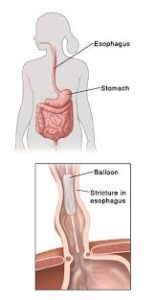
Understanding POEM Surgery
POEM Surgery involves making an incision in the inner lining of the esophagus to allow access to the muscle layer. The surgeon then cuts the muscle fibers that are preventing the esophagus from relaxing. This procedure is performed endoscopically, meaning that it is done using a flexible tube with a camera and surgical instruments, which is inserted through the mouth.
Benefits of POEM Surgery
- Minimally Invasive: Since Peroral Endoscopic Myotomy surgery is performed endoscopically, it does not require any external incisions. This significantly reduces the risk of infection and scarring.
- Quicker Recovery: Patients who undergo POEM surgery typically experience faster recovery times compared to traditional surgical methods.
- Effective Treatment: Peroral Endoscopic Myotomy surgery has a high success rate in treating achalasia and improving patients’ quality of life.
- Less Pain: The minimally invasive nature of POEM surgery generally results in less postoperative pain.
Who Can Benefit from POEM Surgery?
POEM surgery is primarily used to treat achalasia, but it can also be beneficial for patients with other esophageal motility disorders. Candidates for Peroral Endoscopic Myotomy surgery include:
- Patients with Achalasia: Those who have been diagnosed with achalasia and experience difficulty swallowing, regurgitation, or chest pain.
- Patients with Spastic Esophageal Disorders: Those who suffer from esophageal spasms or other motility issues.
- Patients who have not Responded to Other Treatments: Individuals who have not found relief from medications, Botox injections, or pneumatic dilation.
How is POEM Surgery Performed?
POEM Surgery is performed under general anesthesia and typically takes about 1-2 hours. Here is a step-by-step overview of the procedure:
- Preparation: The patient is placed under general anesthesia to ensure comfort and safety during the procedure.
- Endoscope Insertion: A flexible endoscope is inserted through the mouth and into the esophagus.
- Incision: A small incision is made in the inner lining of the esophagus to access the muscle layer.
- Myotomy: The surgeon cuts the muscle fibers of the lower esophageal sphincter to allow it to relax.
- Closure: The incision in the esophagus is closed using endoscopic clips or sutures.
- Recovery: The patient is monitored in a recovery area before being discharged, usually within 24-48 hours.
Recovery After POEM Surgery
The recovery process after POEM Surgery is generally quicker and less painful than traditional surgeries. Here are some key points to consider:
- Hospital Stay: Most patients can go home within 1-2 days after the procedure.
- Diet: Patients will be on a liquid diet for the first few days, gradually progressing to soft foods and eventually a regular diet.
- Follow-Up: Regular follow-up appointments are necessary to monitor healing and ensure there are no complications.
- Activity: Patients are usually advised to avoid strenuous activities for a few weeks but can resume normal daily activities sooner.
Risks and Complications
As with any medical procedure, POEM Surgery carries some risks. However, complications are rare and can include:
- Infection: Follow post-operative care instructions to minimize the small risk of infection.
- Bleeding: Control minor bleeding during the procedure.
- Perforation: There is a slight risk of perforation of the esophagus, which would require additional treatment.
- Gastroesophageal Reflux Disease (GERD): Some patients may develop GERD after the procedure, requiring management with medications or lifestyle changes.
Comparing POEM Surgery to Traditional Methods
POEM Surgery offers several advantages over traditional surgical methods for treating achalasia, such as Heller Myotomy. Here’s a comparison:
- Invasiveness: POEM is less invasive, with no external incisions required.
- Recovery Time: Patients undergoing POEM typically have a faster recovery time.
- Pain: POEM is generally associated with less postoperative pain.
- Scarring: POEM results in minimal to no scarring, compared to the visible scars from traditional surgery.
Cost of POEM Surgery
The cost of POEM Surgery can vary depending on several factors, including the healthcare provider, the complexity of the case, and geographic location. Make sure to check with your insurance provider to understand what portion of the cost they will cover. Additionally, some hospitals may offer payment plans or financial assistance programs to help manage the expenses.
Choosing the Right Healthcare Provider
Selecting a qualified and experienced healthcare provider is crucial for the success of surgery. Here are some tips for choosing the right provider:
- Research: Look for providers who specialize in Peroral Endoscopic Myotomy surgery and have a good track record.
- Credentials: Verify the credentials and experience of the surgeon performing the procedure.
- Reviews: Read patient reviews and testimonials to gauge the quality of care.
- Consultation: Schedule a consultation to discuss the procedure, ask questions, and evaluate the provider’s expertise.
Conclusion
In conclusion, POEM stands as a highly effective, minimally invasive procedure for treating achalasia and other esophageal motility disorders. Transitioning to active voice, it offers numerous benefits, including quicker recovery times, less pain, and minimal scarring. However, it is important to carefully consider whether surgery is right for you, based on your specific medical condition and needs.
By thoroughly researching and understanding the procedure, evaluating your eligibility, and choosing a qualified healthcare provider, you can make an informed decision about surgery. Prioritize your health by staying informed and proactive, ensuring that you receive the best possible care and outcomes from this innovative treatment option.
If you have any symptoms of achalasia or other esophageal motility disorders, consult with your healthcare provider to discuss whether POEM Surgery could be the right solution for you. With the right information and medical guidance, you can effectively manage your condition and improve your quality of life.
